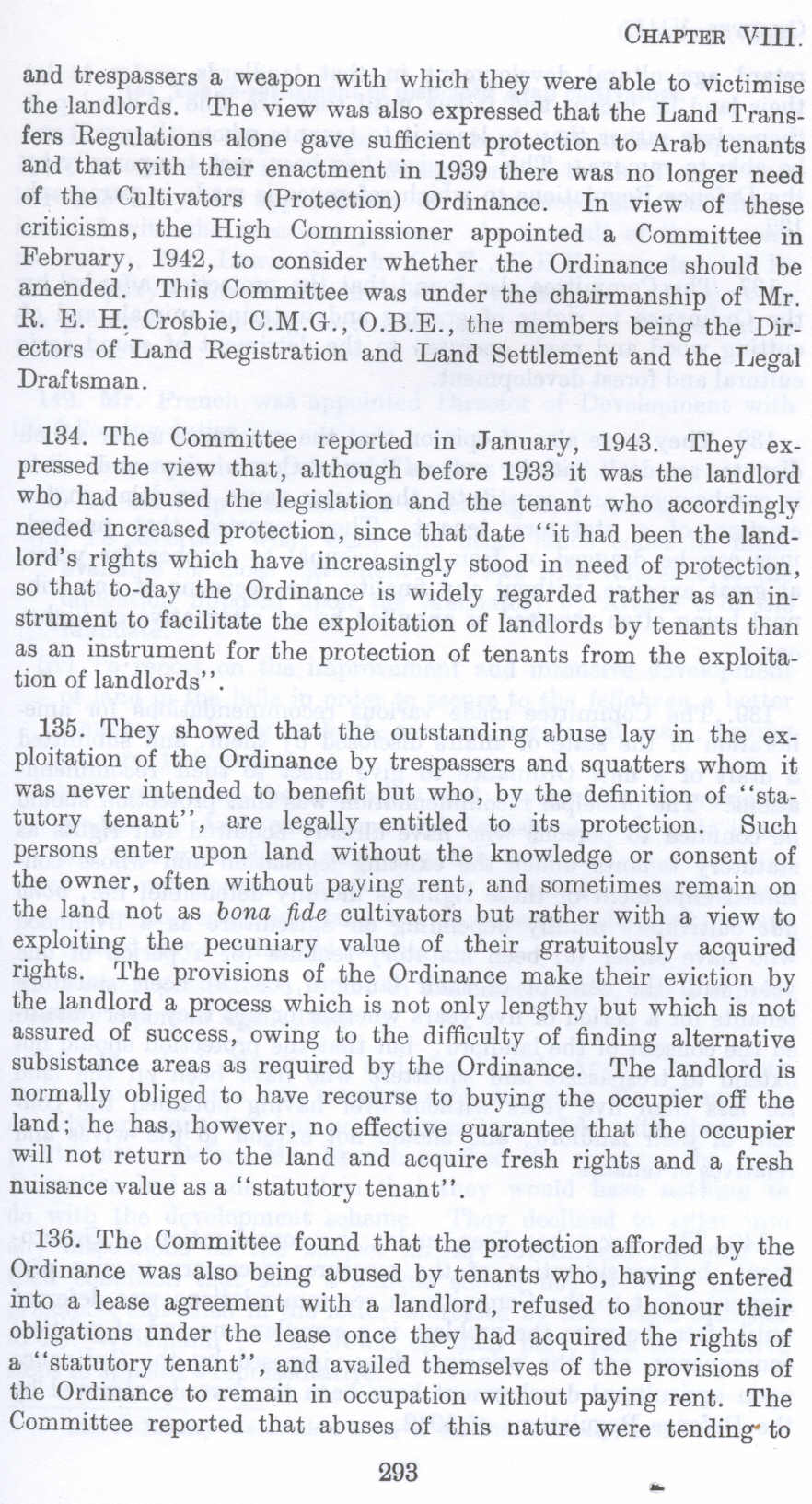| Prev | Next |  |
| Prev | Next |
| PalestineRemembered | About Us | Oral History | العربية | |
| Pictures | Zionist FAQs | Haavara | Maps | |
| Search |
| Camps |
| Districts |
| Acre |
| Baysan |
| Beersheba |
| Bethlehem |
| Gaza |
| Haifa |
| Hebron |
| Jaffa |
| Jericho |
| Jerusalem |
| Jinin |
| Nablus |
| Nazareth |
| Ramallah |
| al-Ramla |
| Safad |
| Tiberias |
| Tulkarm |
| Donate |
| Contact |
| Profile |
| Videos |
British Mandate: A Survey of Palestine: Volume I - Page 293 |
Disclaimer
The above documents, article, interviews, movies, podcasts, or stories reflects solely the research and opinions of its authors. PalestineRemembered.com makes its best effort to validate its contents.


Post Your Comment
*It should be NOTED that your email address won't be shared, and all communications between members will be routed via the website's mail server.
and trespassers a weapon with which they were able to victimise the landlords. The view was also expressed that the Land Transfers Regulations alone gave sufficient protection to Arab tenants and that with their enactment in 1939 there was no longer need of the Cultivators (Protection) Ordinance. In view of these criticisms, the High Commissioner appointed a Committee in February, 1942, to consider whether the Ordinance should be amended. This Committee was under the chairmanship of Mr. R. E. H. Crosbie, C.M.G., O.B.E., the members being the Directors of •Land Registration and Land Settlement and the Legal Draftsman.
134. The Committee reported in January, 1943. They expressed the view that, although before 1933 it was the landlord who had abused the legislation and the tenant who accordingly needed increased protection, since that date "it bad been the landlord's rights which have increasingly stood in need of protection, so that to-day the Ordinance is widely regarded rather as an instrument to facilitate the exploitation of landlords by tenants than as an instrument for the protection of tenants from the exploitation of landlords''.
135. They showed that the outstanding abuse lay in the exploitation of the Ordinance by trespassers and squatters whom it was never intended to benefit but who, by the definition of "statutory tenant", are legally entitled to its protection. Such persons enter upon land without the knowledge or consent of the owner, often without paying rent, and sometimes remain on the land not as bona fide cultivators but rather with a view to exploiting the pecuniary value of their gratuitously acquired rights. The provisions of the Ordinance make their eviction by the landlord a process which is not only lengthy but which is not assured of success, owing to the difficulty of finding alternative subsistance areas as required by the Ordinance. The landlord is normally obliged to have recourse to buying the occupier off the land; he has, however, no effective guarantee that the occupier will not return to the land and acquire fresh rights and a fresh nuisance value as a "statutory tenant".
136. The Committee found that the protection afforded by the Ordinance was also being abused by tenants who, having entered into a lease agreement with a landlord, refused to honour their obligations under the lease once they had acquired the rights of a "statutory tenant", and availed themselves of the provisions of the Ordinance to remain in occupation without paying rent. The Committee reported that abuses of this nature were tending- to
Page 293